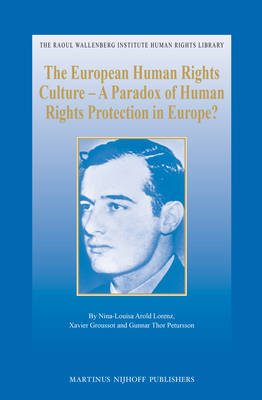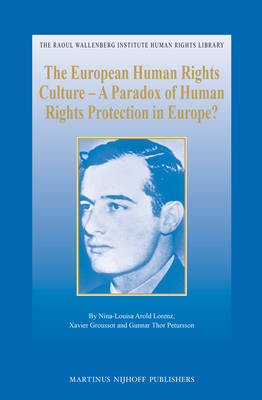
- Afhalen na 1 uur in een winkel met voorraad
- Gratis thuislevering in België vanaf € 30
- Ruim aanbod met 7 miljoen producten
- Afhalen na 1 uur in een winkel met voorraad
- Gratis thuislevering in België vanaf € 30
- Ruim aanbod met 7 miljoen producten
Zoeken
The European Human Rights Culture - A Paradox of Human Rights Protection in Europe?
Nina-Louisa Arold Lorenz, Xavier Groussot, Gunnar Thor Petursson
€ 511,45
+ 1022 punten
Omschrijving
The European Human Rights Culture - A Paradox of Human Rights Protection in Europe? analyses the political term "European Human Rights Culture", a term first introduced by EU Commission President Barroso. Located in the fields of comparative law and European law, this book analyses, through first-hand interviews with the European judiciary, the judicial perspective on the European human rights culture and sets this in context to the political dimension of the term. In addition, it looks at the structures and procedures of the Court of Justice of the European Union (CJEU) and the European Court of Human Rights (ECtHR), and explains the embedding of the Courts' legal cultures. It offers an in-depth analysis of the margin of appreciation doctrine at both the CJEU and ECtHR, and shows its value for addressing human rights grievances. This book is novel in that it combines interviews and case-law analysis to show how a mix of differences on the bench are legally amalgamated to resolve probing legal questions and human rights issues. It shows, through a combined analysis of case-law and recent political developments for European human rights, the tensions between judicial and political approaches and the paradox of human rights protection in Europe. It also offers in-depth knowledge of the European human rights discourse. In addition to a rich study of legal materials, the book looks inside the box by adding the judiciary's perspective. Human rights are widely acknowledged in European societies and cases claiming human rights violations are increasing at both the CJEU and ECtHR. In these times of increased human rights awareness, this book uncovers a paradox in European human rights protection which is created by the push-and-pull between judicial and political interests.
Specificaties
Betrokkenen
- Auteur(s):
- Uitgeverij:
Inhoud
- Aantal bladzijden:
- 310
- Taal:
- Engels
- Reeks:
- Reeksnummer:
- nr. 44
Eigenschappen
- Productcode (EAN):
- 9789004258433
- Verschijningsdatum:
- 25/11/2013
- Uitvoering:
- Hardcover
- Formaat:
- Genaaid
- Afmetingen:
- 155 mm x 239 mm
- Gewicht:
- 566 g

Alleen bij Standaard Boekhandel
+ 1022 punten op je klantenkaart van Standaard Boekhandel
Beoordelingen
We publiceren alleen reviews die voldoen aan de voorwaarden voor reviews. Bekijk onze voorwaarden voor reviews.








